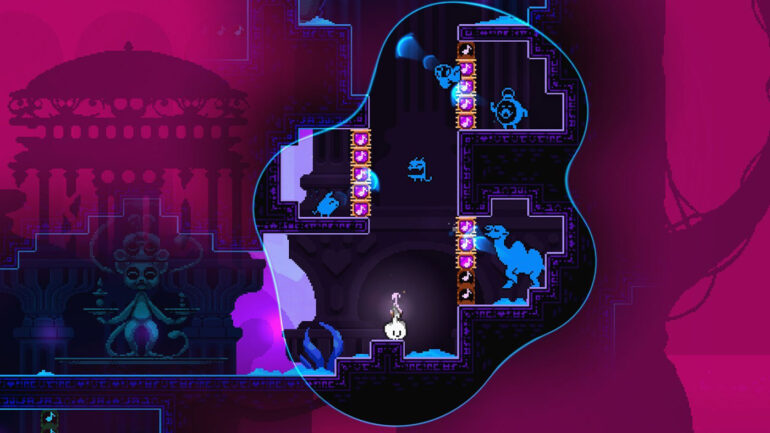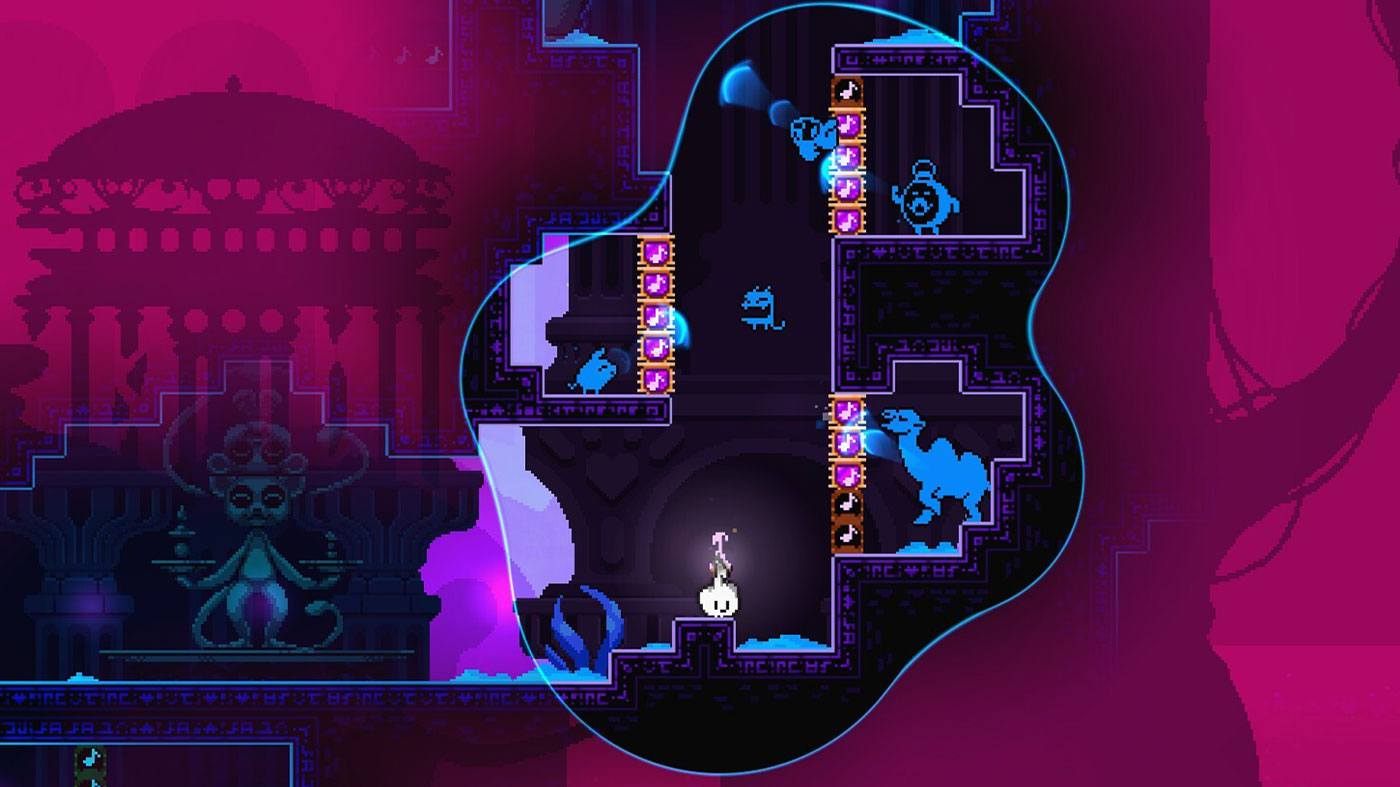Revolving around wholesome mindfulness, as well as the core beliefs of karmic law, KarmaZoo is likely to end up this year’s most enlightening game. Within the context of a cooperative platform-puzzle game, it takes your every move and measures them against the Hindu notion that any action, particularly positive ones, creates a memory that sees that energy returned in kind. It’s not as though KarmaZoo is that deep though, it rewards the good without really punishing the bad, so its lessons seem only skin deep in the interest of a good time.
From the moment you’re born into its world as an amorphous yet active little blob, it preaches positivity and encourages kindness like no other game I’ve played. In a world where toxicity and griefing permeate just about every other multiplayer experience, it’s very refreshing that KarmaZoo reinforces and rewards the good in people.
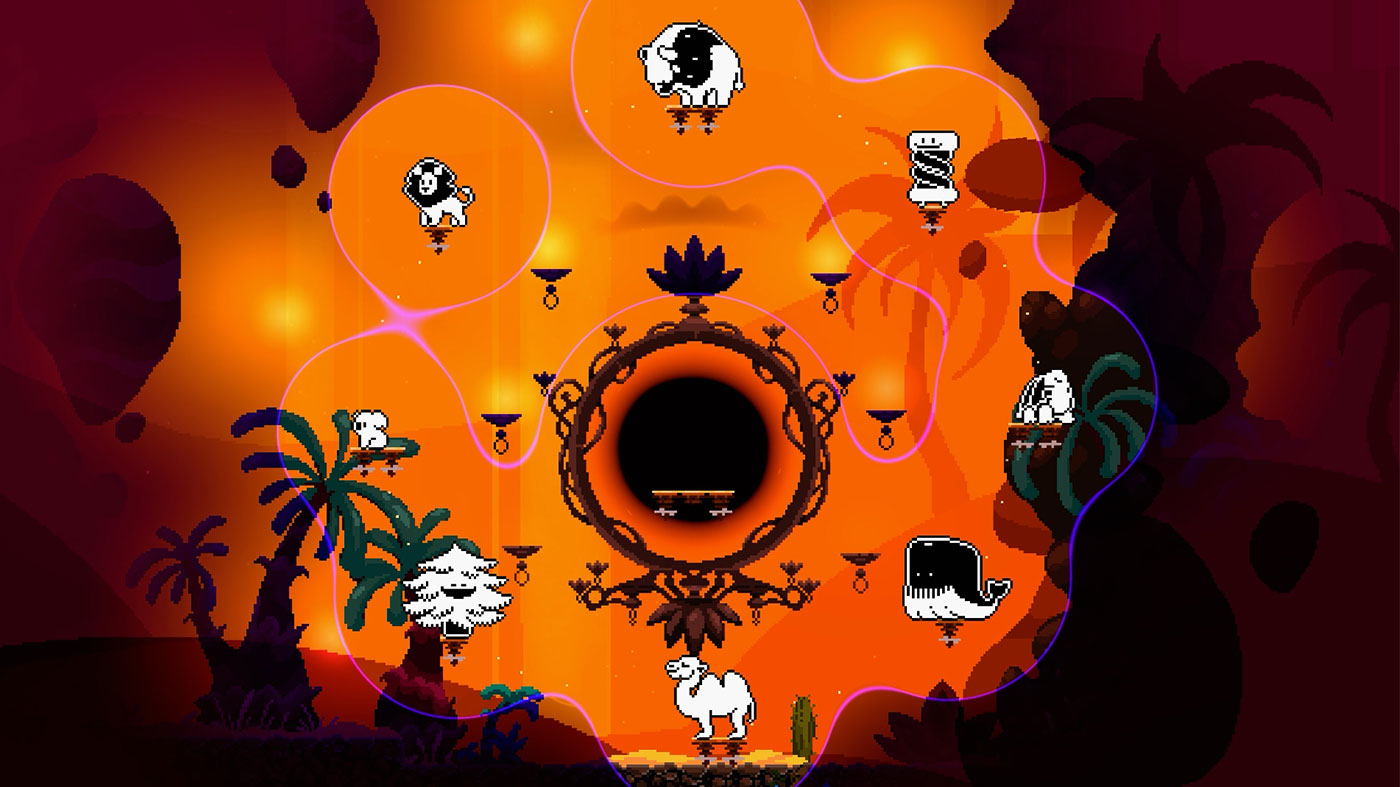
The whole idea of the game is to grow your karma tree with hearts. To earn these you’ll go through loops with as many as nine others, performing generous or sacrificial acts throughout to earn said hearts. They also serve as the game’s singular form of currency, letting you exchange them for an enormous number of character forms, ranging from animalia to flora, and even quirky inanimate objects brought to life.
Feel more with PS5. Beyond the everyday. Beyond extraordinary. Even beyond imagination. Feel it now.
Although there are dozens of forms you can buy and assume, they do each slot into an archetype meaning the abilities they bring to the fold aren’t all unique. Some use their girth to power through walls, and others can perform more acrobatic acts such as gliding or triple-jumping, but it’s through the gradual drip feed of these characters and abilities that the game manages to remain fresh enough considering its lone cooperative mode, Loop, is the bulk of what you’ll be doing.
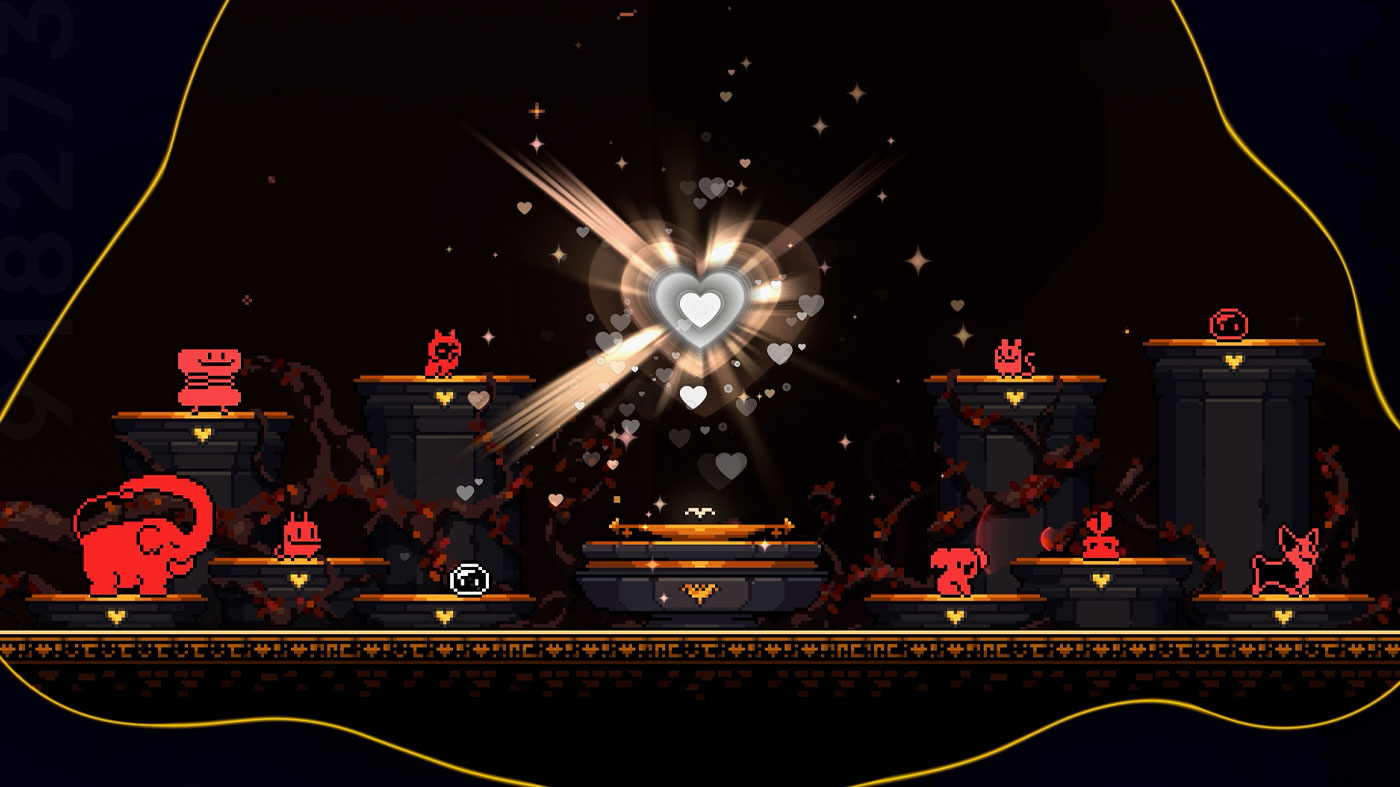
KarmaZoo is a super accessible and easy-to-pick-up platformer that juxtaposes its basic controls with its, at times, perplexing raid-like level design that demands collective thought and consideration to push through. When the eureka moment strikes and your squad presses deeper into the level, towards the portal that closes each stage, it can feel pretty rewarding.
Another interesting hook of the game requires players to remain in close proximity to one another, and if a player drifts from the pack without returning to the safety of the group aura they’ll perish, becoming a cute, albeit inert, ghost for the remainder of the stage. And with doors constantly separated from their switches, this is the basis of many of the game’s tense, heart-pounding moments. Beyond that, players can sing out to activate lifts, break musical blocks, and so forth. With a few things to juggle, it’s another fun layer to proceedings that are made even better realising that it adds a layer of personality to each animal, whether it’s the pig’s harsh squeals or the koala’s gloriously melodic pipes.
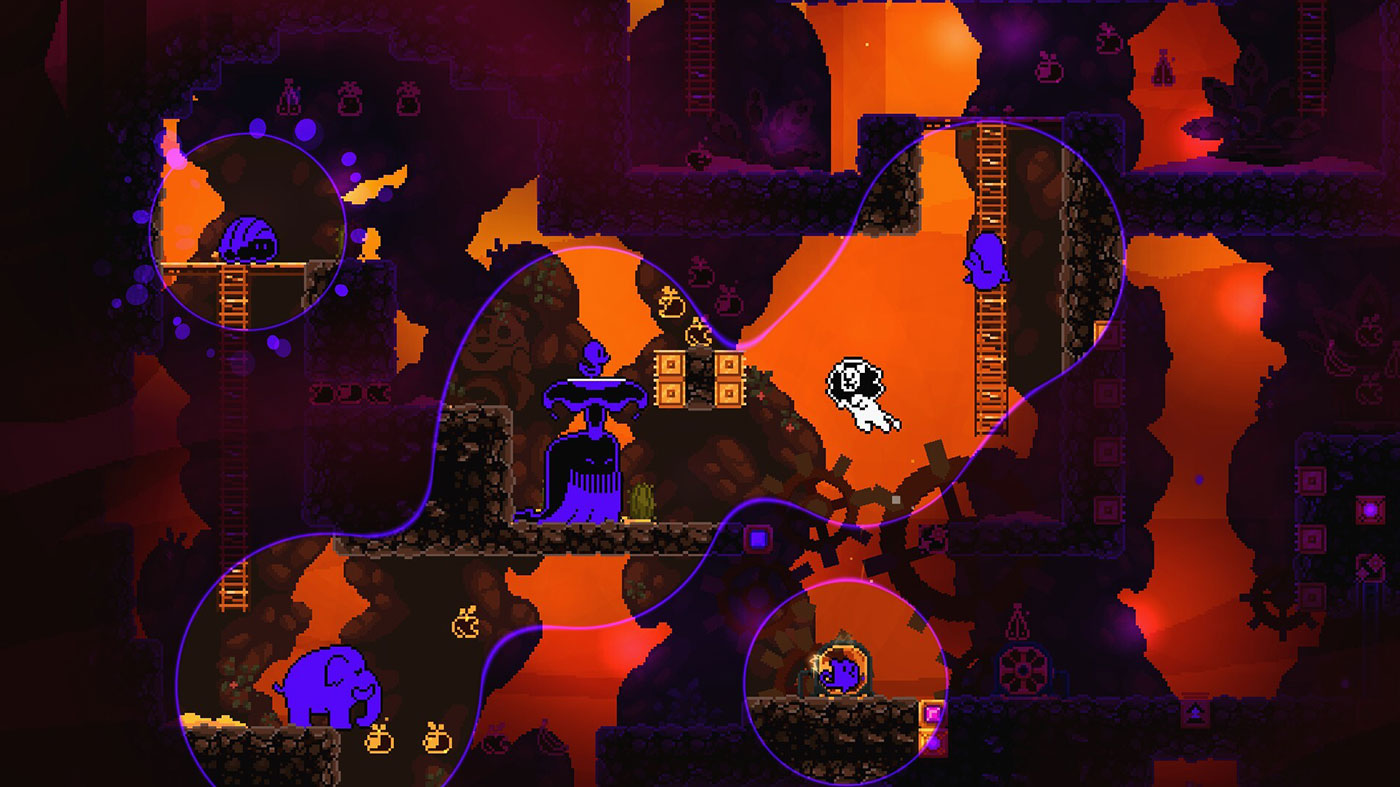
In fact, even though they’re a small mass of pixels, each of the creatures whose bodies you inhabit ooze personality through cute idle animations which regularly had me parked in complete disregard for the time pressure each level presents. Though it’s an economical pixel art style that the developer employs, its use of warm, vibrant colour throughout its many trippy levels speaks to a warranted level of flair, culture, and mysticism considering the game’s subject matter.
Although most will mistake the game’s levels as procedurally generated, there are actually hundreds of curated, hand-crafted stages that are all a part of a pool that the game populates each loop from. It takes things like player numbers and abilities into account to ensure that it’s persistently challenging and evolving as you and your friends gain new critters.
Obviously, the game is going to be best in full groups, any less and the juice might not be worth the squeeze. I found the return on closed loops with smaller groups to be somewhat paltry, considering the hefty sum that’s asked for certain animals within the sanctuary. The game is accessible enough that if people do give it a chance I expect it could become a fixture in weeknight rotations. The handful of sessions I’ve been able to play have been a blast, but I did sense the dread of diminishing returns creep in as the slow grind of unlocking new animals met the monotony of seeing the same levels head-on.
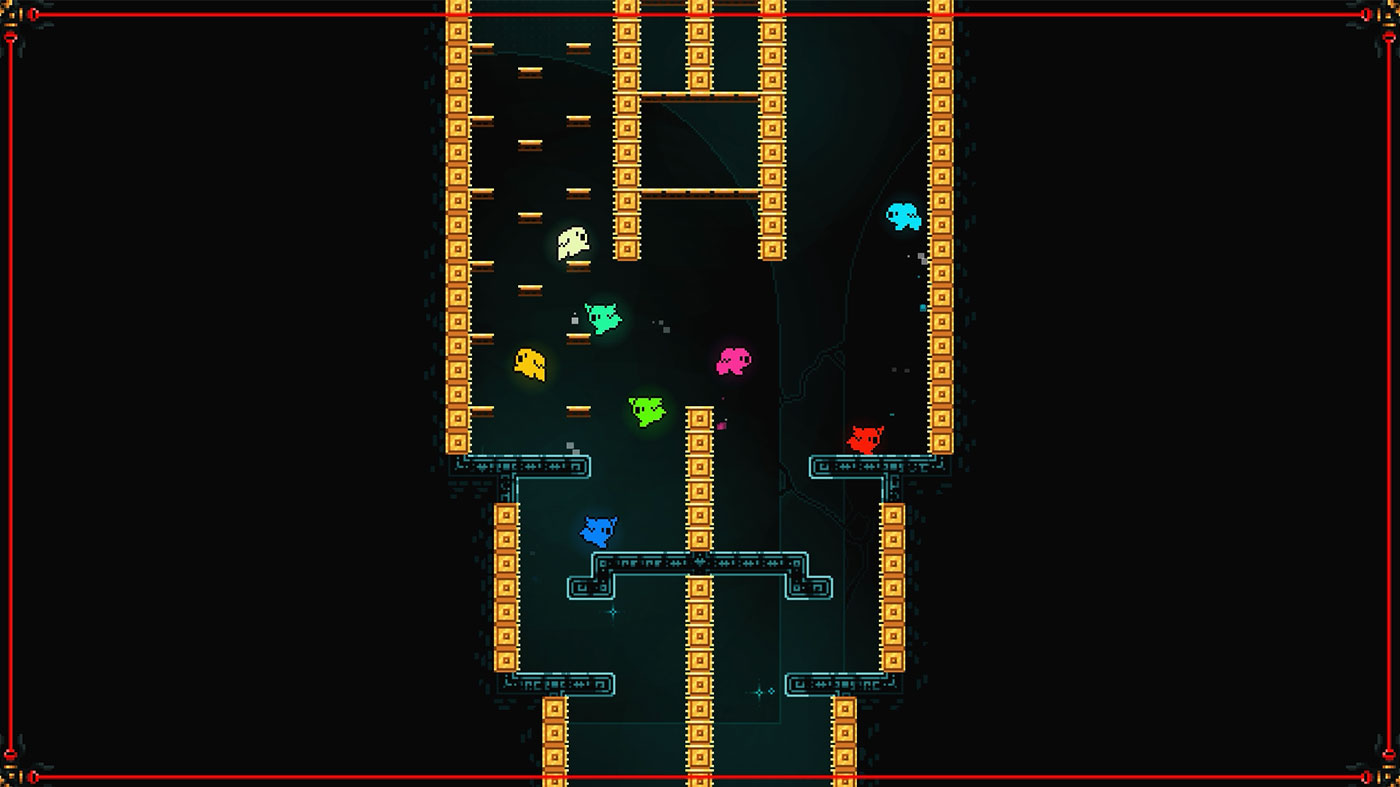
Entirely antithetical to the game’s wholesome message of banding together, Totem is a competitive mode for players to blow off steam. It’s a fun enough distraction that openly defies the game’s peace and love message while giving the player no real reason to participate. The rest of the game hammers home the importance and value of hearts, and for Totem’s reward to be a podium finish over friends feels kind of empty and pointless in the face of the game’s otherwise hefty grind. I’m certainly not suggesting the games aren’t fun because there’s nothing more satisfying than limping in over the line against friends, it’s just hard to consider it a worthwhile aside.
Although it’d do nothing to compliment the game’s core message, if I were able to wager hearts in friendly competition then I think that’d add a certain level of spice.
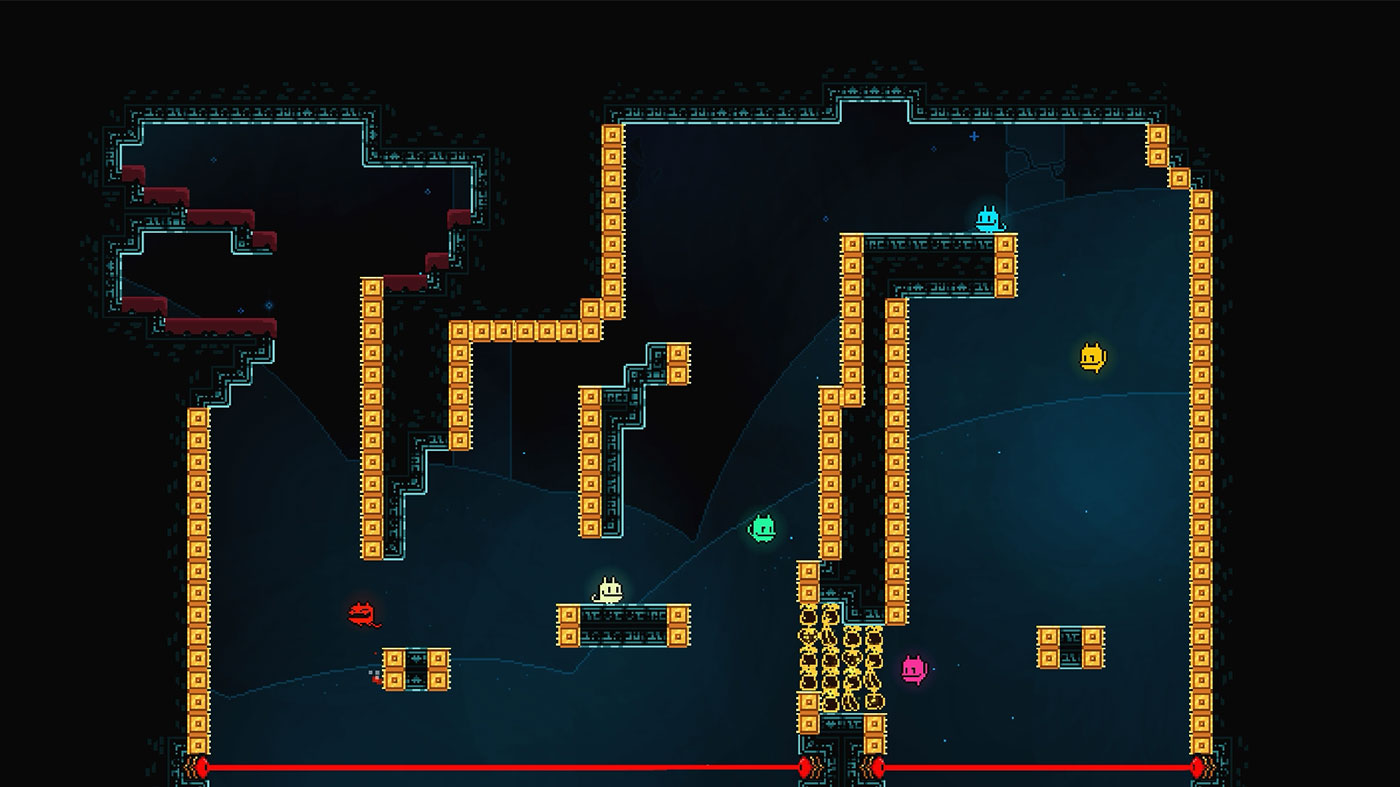
So, at the end of the day, the success of KarmaZoo is going to come down to whether a community forms around it. If it’s impossible to find a loop within a fortnight of launch and your buds go on to the next thing, it’s over. Although I fully understand why it doesn’t exist due to vision and most likely coding, I do wish the game had some option for lone-wolf looping.
Players are not only going to have to band together to close their loops and reach a state of nirvana, but they’re also shouldering the task of keeping KarmaZoo alive and breathing.


